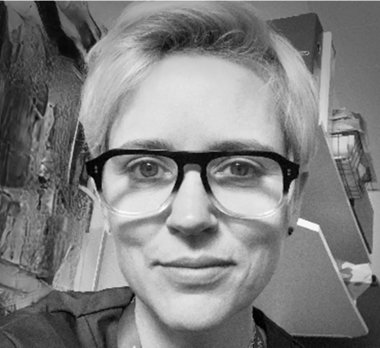7 April 2021
Hear from Ms Victoria Rose on the importance of bringing surgeons and academics together across King’s Health Partners to discuss innovative ideas.
Ms Victoria Rose is a consultant plastic surgeon and works across both Guy’s and St Thomas’ and King’s College Hospital NHS Foundation Trusts. We took five minutes to learn more about her work and role in King’s Health Partners Academic Surgery – a new programme that brings surgeons together across our partnership to collaborate in surgical science and improve education for future surgical trainees.
What is your current role and what can you tell us about your career up to this point?
I am a consultant plastic surgeon and work across both Guy’s and St Thomas’ and King’s College Hospital NHS Foundation Trusts. At Guy’s and St Thomas’ NHS Foundation Trust my work focuses on breast cancer reconstruction and at King’s College Hospital NHS Foundation Trust I work on trauma reconstruction. I qualified from Charing Cross Medical School in 1995 and went straight into surgery.
Plastics was something I had little exposure to as a student, but it was on my basic surgical rotation and I just fell in love with it. It is challenging, hugely rewarding and gives me the chance to work with surgeons from lots of different disciplines. I became a consultant in 2007 and spent the first part of my career building a microsurgical breast reconstruction service in Manchester. I came to Guy’s and St Thomas’ NHS Foundation Trust in 2013 where I have been building a microsurgical trauma reconstructive service at King’s College Hospital NHS Foundation Trust.
Can you tell us more about your involvement with our Academic Surgery programme?
I represent plastic surgery for the King’s Health Partners Academic Surgery programme. I have been involved in the conceptualising sessions to facilitate smarter working streams as well as putting together the plastic surgery programme for the virtual grand round. The King’s Health Partners Virtual Academic Surgical Grand Rounds are an innovative and dynamic lecture series which aim to inform practising surgeons, undergraduate and postgraduate trainees who aspire to be surgeons, along with allied healthcare professionals who support day-to-day work, about the latest themes in surgery. They take place on the last Thursday of every month, with the next taking place on 22 April. The Academic Surgery programme has been fantastic in giving a us a chance to look at what our non-plastic surgery colleagues are doing and how we can better collaborate.
What do you think the opportunities and benefits are of bringing together clinicians and academics in the surgical field that we would not otherwise had?
Working together under the King’s Health Partners Academic Surgery programme plays on the two different strengths of clinicians and academics and enables us to move projects forward more quickly and meaningfully to improve patient outcomes. It has also drawn in surgeons who normally would not have time to engage in research, due to heavy clinical commitments. Certainly for me it has meant exposure to a group of enthusiastic academics who are keen to collaborate and have experience in getting projects off the ground and planning meaningful trials.
How has your field changed over the past few years, and more recently, as a result of COVID-19?
We are refining our surgical techniques all the time but the real developments for plastic surgery have been in technology. COVID-19 has forced the use of digital platforms which has hugely enhanced our training opportunities. We are networking regularly with our peers nationally and internationally and used remote learning opportunities to keep our trainees engaged.
What do you think the next few months and years holds for your work?
In the immediate term we will finalise a robust recovery plan. We have accrued a large waiting list, which we have prioritised, and we are looking at ways in which we can deliver the extra operating sessions necessary to address this. As well as this we need to concentrate on positive changes in our working patterns that have emerged from the pandemic and concentrate on how we can embed them into our service going forward.
What advice would you give to aspiring surgeons in your field?
It is highly competitive at the entry level, but I would say do not give up. It is worth the effort. Anyone who is determined enough will get through. Plastic surgery is such a diverse speciality that there is a niche for everyone.
Want to benefit from King’s Health Partners Academic Surgery? Take a look at our new website detailing its key areas of focus.





